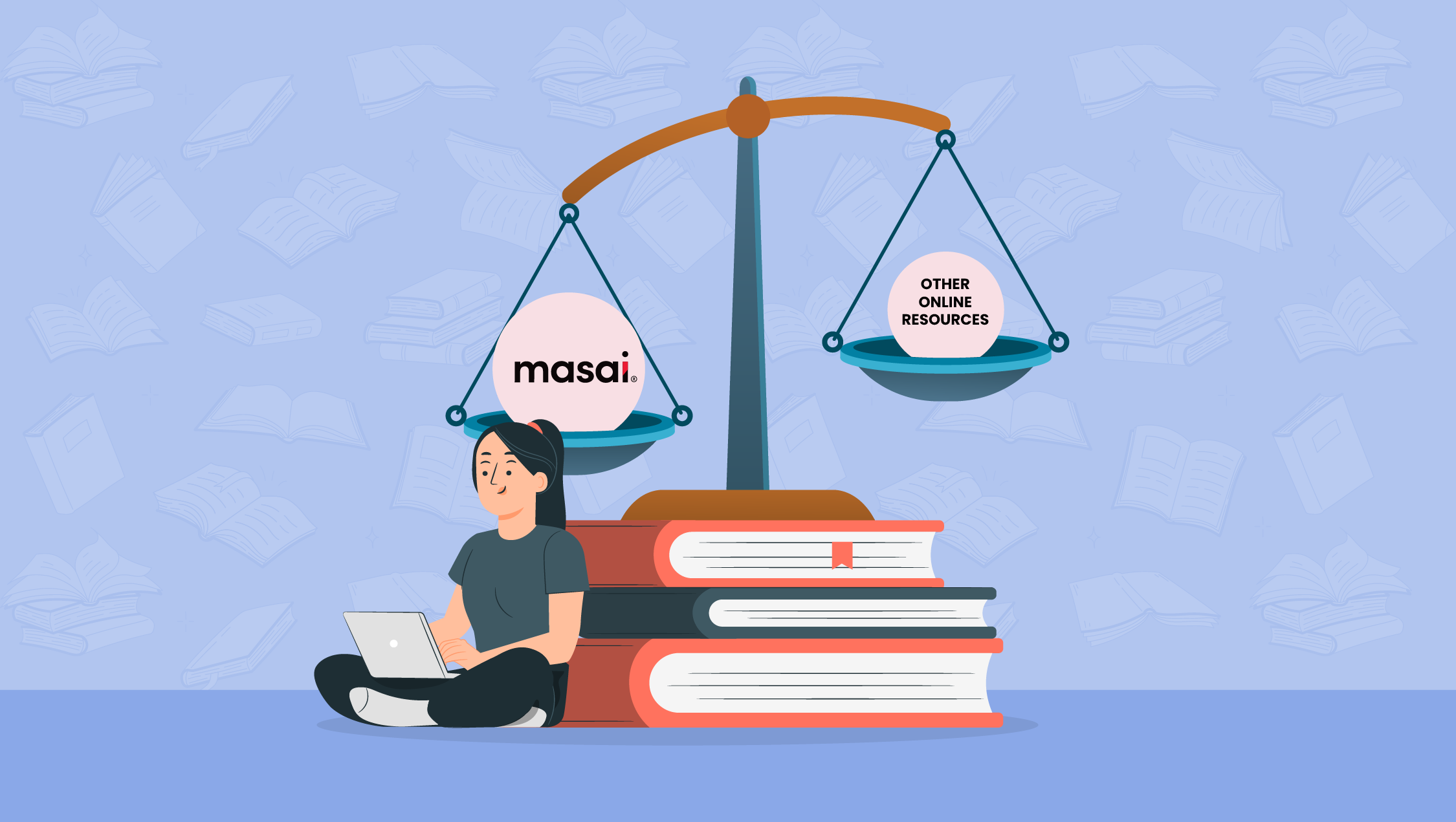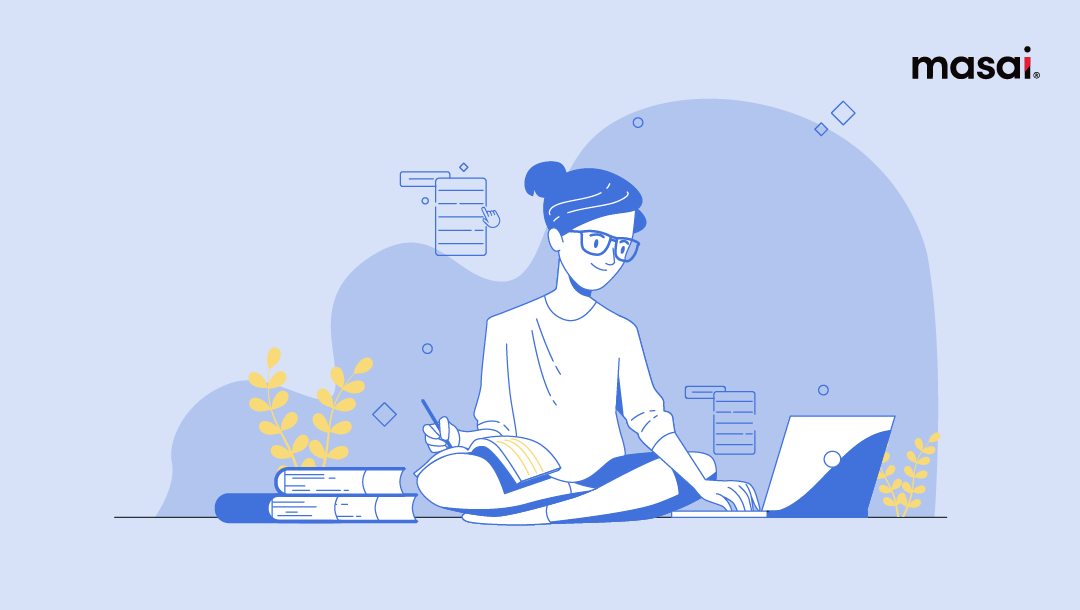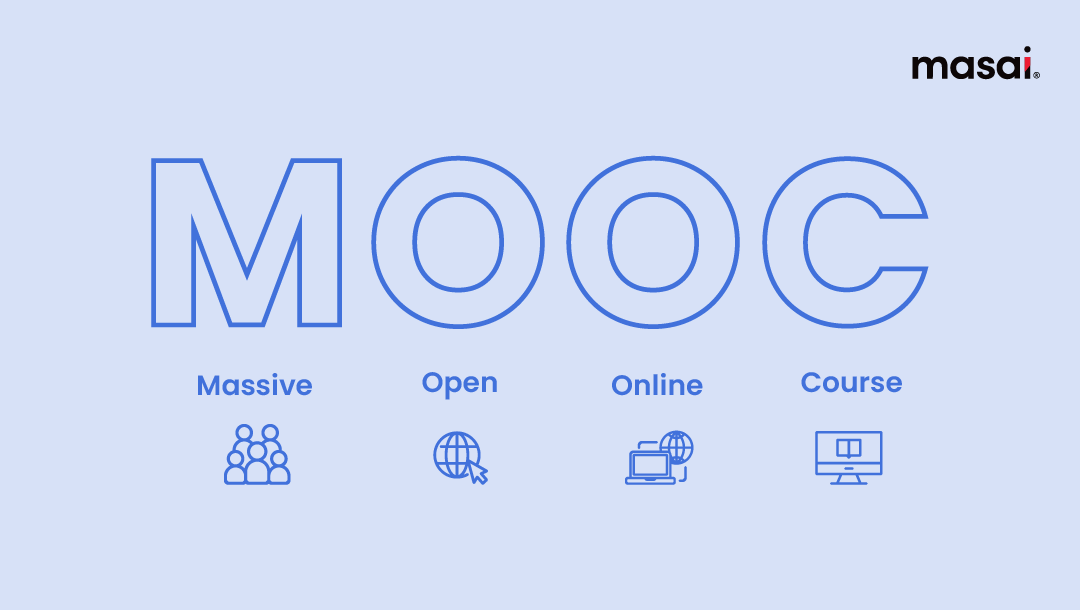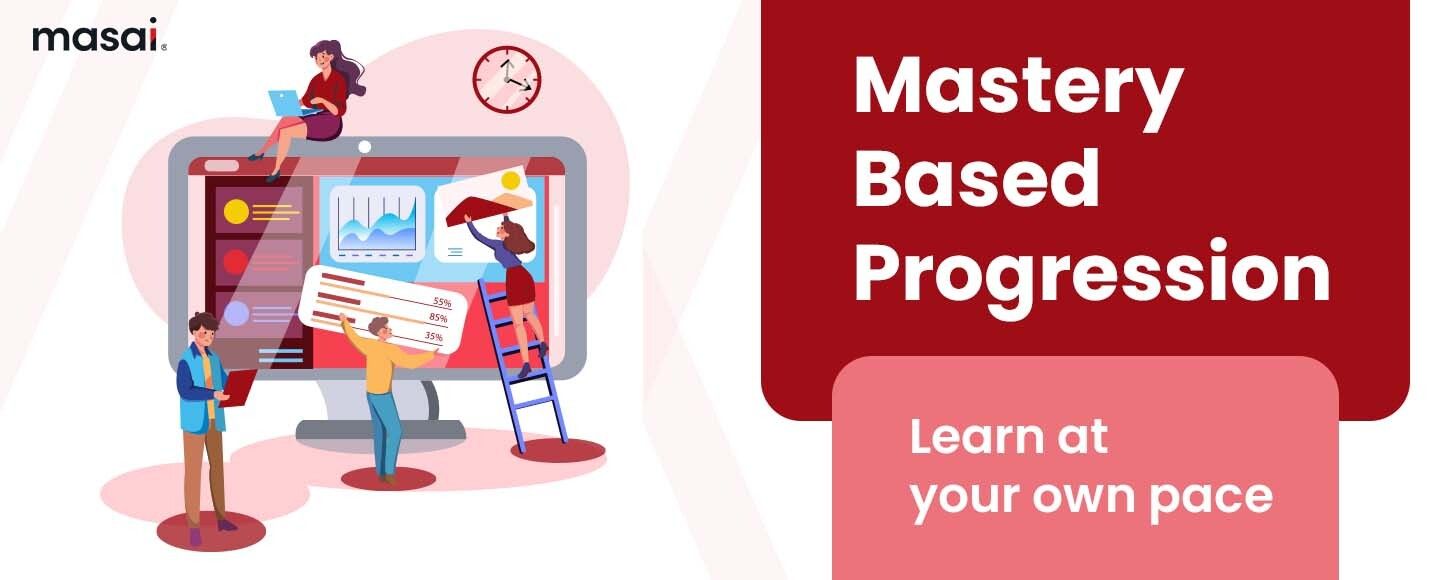Why study at Masai when you can learn from other online resources?
The state of education in India is broken, and therein lies the opportunity to enhance, and innovate to make learning inclusive, impactful, and outcome-oriented.

Education serves as one of the most important instruments in shaping an individual as well as a country’s future.
Education played a pivotal role in shaping the future of India’s 11th president Dr. A.P.J Abdul Kalam. Today we remember him for all his innovations, and as one of the best presidents of India. But all of this would not have been possible, had he not undergone education that helped him rise above the dark cobwebs of poverty and inequality.
The state of education in India is broken, and therein lies the opportunity to enhance, and innovate to make learning inclusive, impactful, and outcome-oriented.
But, before we get into why Masai should be chosen as a mod of learning over other alternative online sources of learning, let's first understand how people typically learn, or what are the sources that enable learning.
Colleges and Universities: With thousands of colleges churning millions of graduates every year, only a handful are able to start their professional careers, and land opportunities that are at par with their skills. This leaves the students in a dire situation where they encounter a big gap between their knowledge and skills and have to look out for additional resources to bridge this gap.
The lack of focus of colleges on practical learning leaves students in a state where they struggle to find jobs or have difficulties showcasing their true potential when they appear for interviews.
Learn while doing: This is the methodology of learning where individuals learn skills and don’t just read about how something works – they actually engage in activities that allow them to understand its application thereby inculcating skills, critical thinking, and problem-solving acumen.
One very good example of an individual who put the method of learning on the go to good use is Mark Zuckerberg, the founder of Facebook (now Meta) who learned programming on the go and went on to build a social network as big as Facebook.

Massive open online courses (MOOCs) and other online resources: Millions of online classes from well-renowned ed-tech companies such as Coursera, Udemy, Udacity, etc have been able to shape the careers of numerous people. But there is only a handful of them.
MOOCs fill a void for learners who lack the time and money to physically attend courses with high-quality content. And, this makes MOOCs a learning option that has the ability to become a game changer. But it has failed to deliver results.
A study by Inside Higher Ed in 2017-18 revealed that 3.3% of students completed their online courses.

The reasons for these sources of information not living up to their potential are manifold and interconnected. Well, the inability of these sources of learning to deliver substantial results can be summed up as follow-
- Absence of peer learning.
- Doubt resolution and measurement of progress become a difficult task.
- One-on-one student focussed assistance
- Lack of overall holistic development
- Lack of industry-specific knowledge
To address these underlying problems in Education, and learning- Masai was born.
Masai School was founded with a mission to find and train the underutilized potential and talent in the country and make them ready for the most in-demand jobs in the technology industry.
The curriculum is designed so that graduates go into the job with a strong foundational knowledge of the programming languages and the responsibilities they would be required to execute at the workplace. In a nutshell, Masai’s curriculum strengthens the students’ core competencies by providing education and inculcating skills that are driven by the outcome.
Since our inception, we have been able to endow almost 1000+ students with skills that helped them bag jobs with packages higher than 5 LPA. A major portion of these students come from non-technical backgrounds.
Why Masai over other online resources?
The other resources of learning definitely help students gain knowledge but there is still the need to make them proficient enough so that they could deliver on the job from day one and this is where Masai comes into the picture.
Our recent batches have been placed with an average salary package of 7.5 LPA. The highest salary package ever secured by a student at Masai has been 36 LPA. 70% of Masai graduates come from non-metropolitan locations and 44% of them come from non-technical backgrounds.
Following are the key principles on which Masai’s curriculum has been built that make sure the students who enroll here go through an experience of a lifetime-
Mastery-based progression: Mastery-based progression is a system of learning where students make the gradual shift from surviving to learning. Yes, Masai puts a lot of emphasis on mastering skills, but unlike traditional teaching methods, the major goal here is not on scoring marks but on strengthening the core competencies that make up a software developer. The underlying principle of mastery-based progression (MBP) at Masai is the ultimate goal to make sure that no student gets left behind. At Masai, the progress of a student is measured on the basis of proficiency they show during the application of the skills they have acquired.
The single goal of mastery in the minds of the students facilitates deeper learning at two levels:
- Peer-to-peer learning: With MBP, there is a gradual shift of focus on the student’s end from marks to mastery. This ensures the students share a single goal and leave no room for envy and discrimination.
- Student-instructor relationship: Keeping mastery at the focal point of MBP make sure there is consistent interaction between the students as well as the teachers. These interactions help teachers develop a deeper understanding of the student helping them find out their problem areas and facilitate learning at a comfortable pace.
Robby Dongre, a Masai alumnus who quadrupled his salary attributes his success to Masai’s Mastery-Based Progression bagging a job at DreamzTech Solutions as a software engineer after appearing for 12 interviews.
Read more about Robby’s Masai journey here.

Holistic development: This is a comprehensive approach where Masai focuses on the development of the intellectual, mental, and social abilities of an individual in order to ensure that they inculcate within them the qualities necessary for facing the demands and challenges of the professional field.
With the competition getting intense out there it has become necessary for individuals to venture into the professional world with hard skills, and soft skills as well as a growth mindset. It should not come as a surprise but most organizations in recent times have given top-most priority to individuals who bring with them the soft skills that can help them deliver results from day 1 and in the long term help in the growth of the organization.
This is how Masai develops its students holistically-
- CSBT: Communication skills and behavioural training at Masai enable our students to gain an edge over the other students when it is time for placements. There are instructors who make sure the students get a strong hold on the functional aspects and then there are instructors who put in work daily to better their communication & people skills good enough to crack the placement code.
Hassan, one of the students from our earliest batches, The Vikings, emphasizes how Masai focuses not just on teaching skills but also on the overall development of the students, setting the foundation for their professional growth.
Hassan has moved on from the mechanical engineering industry toward a more high-paced career in technology. Hassan now works as a software engineer at Sharechat.
Read more about Hassan’s Masai journey here.
Pay After Placement (PAP): A pay after placement is a contract in which a student does not have to pay any amount of money in exchange for a specified proportion of her earnings after the course is completed.
The PAP was put in place at Masai school to fill the huge gap that lies between the even distribution of potential and the uneven distribution of opportunities.
This PAP model allows students to gain an education at no upfront cost. It eliminates the fear of the debt that starts lurking on the top of their head once they graduate.
The mere promise of zero course fees until a salary package of 5 LPA makes sure that the responsibility of course fee payment is equally distributed between the students as well as Masai.
Many of our students come from underprivileged backgrounds. ISA has played a crucial role in ensuring they get access to education that makes their dreams come true.
Know more about PAP here.
Practical learning: Practical learning beats theoretical learning regardless of the skill or industry under question. It helps individuals to test their understanding of the concepts learned by constantly applying them in new scenarios. It helps students improve their skill set, increases understanding, improves knowledge retention, and creates deep-level impact.
Masai enables practical learning for students through the following ways-
- Gradual release of responsibility (I-do, we-do, you-do teaching pedagogy): This is a teaching strategy that works on 3 levels to ensure the gradual release of responsibility between the teachers to the students. These three levels are display, prompt, and exercise.
- Display is where the instructors set the base for the students. They introduce a new concept to the students and teach them the appropriate manner to execute the underlying skill being taught through the concept.
- Prompt marks the beginning of the release of responsibility from the teacher to the student. This is where the teachers join hands with the students and go through examples to foster a deeper understanding of the concepts taught
- Practice is the point where students take the center stage and display their understanding of the concepts taught by solving assignments. At this stage teachers also actively participate and find out any possible areas of concern among the students and take necessary steps to weed out the problem.
Read more about I-do, We-do, You-do teaching pedagogy here.
- Construct Week: Throughout the 30-week duration of the curriculum, Masai students come together every 5 weeks to work on building clones of websites and apps. Construct week gives them an opportunity to implement their learnings and engage with other students thus putting them on the path of peer learning where they share ideas and thoughts centered around making the project better and learn from each other in the process. This gives them a taste of what it would feel like to work in a corporate setup.
Read more about some of the cool projects our students worked on during their 30-week tenure here.
- Accountability & discipline: A typical day at Masai consists of hour-long English lectures, one and a half hours of the contest, an hour of DSA, and a lunch break followed by three-hour-long coding classes. Next, students are supposed to work on daily assignments. This routine runs from 9 am to 9 pm every day for 6 days a week. By putting students through this rigorous framework, Masai ensures that students pass out the 30-week curriculum with discipline and time management qualities.
Vasudev, one of our students who made the career shift from mechanical engineering to software development speaks highly of our 9-9-6 framework of teaching. It made him a highly disciplined and organised person. He also liked the teaching methods of all the mentors.
Read Vasudev’s full story here.
A majority of the youngsters in India, the country with the largest youth population in the world are left unemployed after graduation. This calls for reforms in the educational system of the nation.
Masai’s mission is to address this problem and bring into place a system that aims to holistically develop individuals. There are other big players similar to Masai that have popped up to serve the same purpose and they will keep popping up until and unless these reforms are not brought up.

